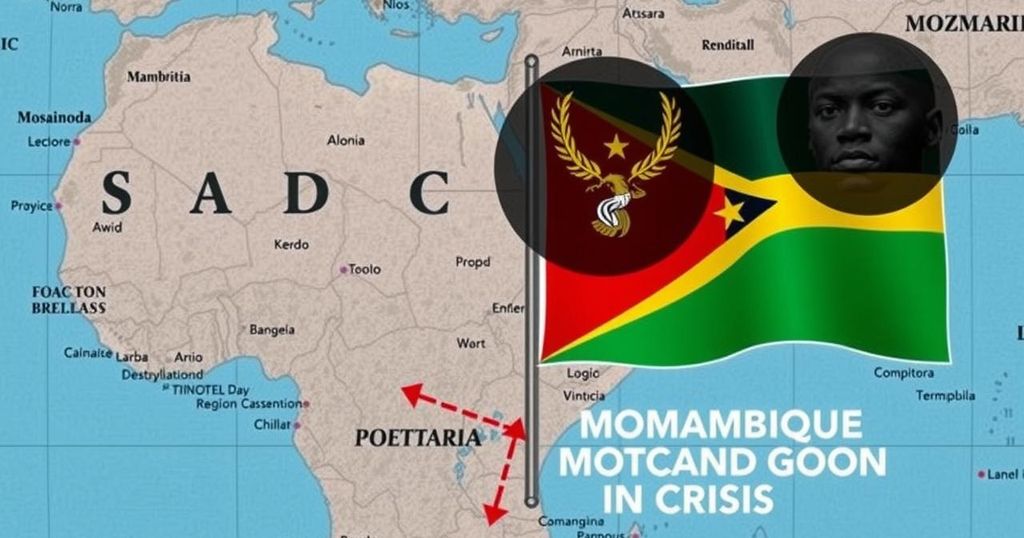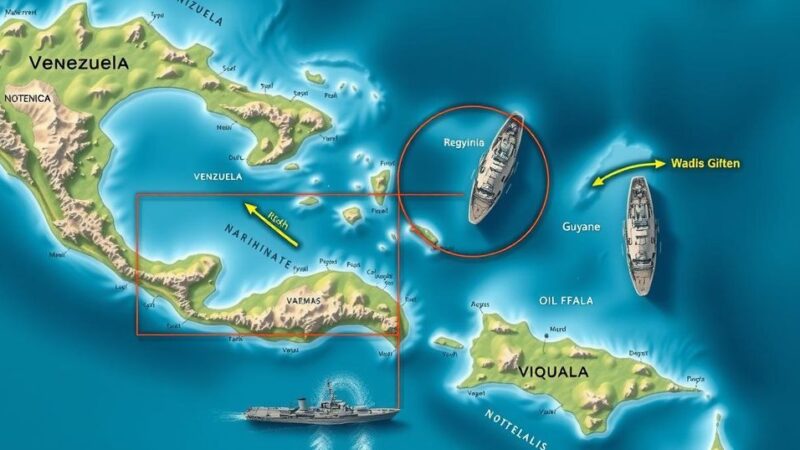Zimbabwe’s President Emmerson Mnangagwa announced SADC’s readiness to assist Mozambique amidst severe post-election violence that has claimed over 100 lives. Acknowledging claims of electoral fraud, South African officials called for urgent dialogue to restore peace. Human rights organizations have condemned the government’s response to protests, urging for an end to violence to avoid further hardship across the region.
In recent statements, Zimbabwe’s President Emmerson Mnangagwa, who currently chairs the Southern African Development Community (SADC), expressed that the regional bloc is prepared to assist Mozambique amid a crisis of post-election violence which has reportedly resulted in over 100 fatalities among protesters. The crisis follows contentious elections on October 9, during which the opposition alleged their victory was unjustly appropriated by the ruling Frelimo party, which was officially declared the victor by the Constitutional Council with 65% of the vote.
South Africa’s Minister of International Relations and Cooperation, Ronald Lomola, emphasized the need for urgent dialogue to restore peace and develop a new political strategy in Mozambique. Lomola asserted that South Africa stands ready to aid in facilitating this crucial conversation. Acknowledging the tumultuous situation, Venancio Mondlane, a leading opposition figure, noted the plight of citizens suffering under the ruling party, urging for a collective effort to defend businesses amid the ongoing unrest.
Amnesty International’s Deputy Regional Director for East and Southern Africa, Khanyo Farise, criticized the Mozambican government for its severe crackdown on protest activities post-elections. In her remarks, she condemned the excessive force utilized by police against demonstrators exercising their rights, indicating that brutal police action has led to substantial injuries and loss of life.
Borges Nhamirre, a researcher with the Institute for Security Studies, highlighted the urgent need for peace, stating that the closure of ports in Mozambique has led to widespread hardship across the region. He maintains that dialogue is the only viable solution to restore stability and resource access for neighboring countries such as Zimbabwe and South Africa. The calls for peace from both the opposition and regional organizations signal the potential for a resolution to the current turmoil.
The recent electoral process in Mozambique has ignited significant unrest, with the opposition claiming electoral fraud and the subsequent conflict resulting in multiple fatalities. The SADC, alongside South Africa and other regional partners, advocates for dialogue as a means to address grievances and restore order. Historical distrust in the political process and inadequate responses to civil unrest have exacerbated tensions, drawing attention from international watchdogs like Amnesty International, which has condemned the government’s violent suppression of protests. The region’s economic interdependence further underscores the urgency for resolution, as ongoing instability disrupts trade and humanitarian relief efforts.
The political climate in Mozambique remains precarious following the contested elections and subsequent violence. The involvement of regional bodies, notably SADC and South Africa, emphasizes the necessity of dialogue to address the grievances of the opposition and restore calm. With calls from various factions for peace, there exists hope for a resolution that prioritizes human rights and socio-economic stability within the region.
Original Source: www.voanews.com






